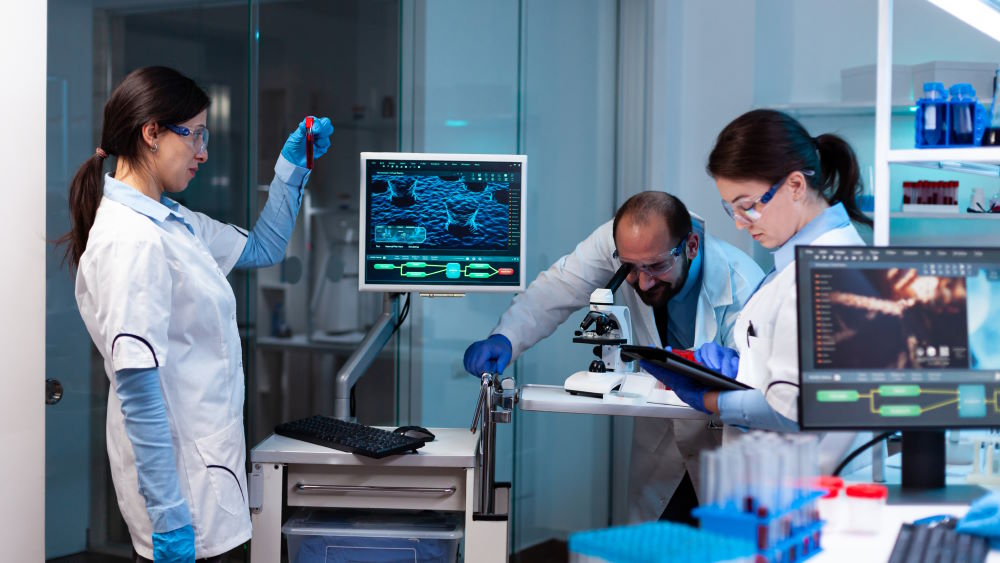The field of healthcare is undergoing a significant transformation as data science techniques revolutionize the way medical professionals practice medicine and improve patient care. The ability to analyze vast datasets and extract meaningful insights is proving invaluable in this data-rich sector, leading to enhanced diagnostics, personalized treatments, and improved patient outcomes.

Precision Medicine and Data Science
One of the most significant impacts of data science in healthcare is the emergence of precision medicine. This approach leverages individual patient data, including genetic information, to develop tailored treatment plans. By analyzing a patient’s unique genetic makeup, medical historians, and lifestyle factors, healthcare providers can prescribe customized treatments and medications, significantly improving their effectiveness.
For instance, data scientists can help identify genetic markers for specific diseases or predict patient responses to certain medications, enabling doctors to make more accurate diagnoses and provide personalized prescriptions. This approach holds the potential to revolutionize healthcare, transforming it into a more efficient and effective science.
Improving Patient Outcomes
Data science also plays a crucial role in enhancing patient outcomes by contributing to evidence-based medicine. Healthcare providers can leverage large datasets to identify trends and patterns that inform clinical decisions. For example, analyzing historical patient data can help predict the progression of chronic diseases, allowing doctors to intervene earlier and provide proactive care.
Moreover, data-driven insights can aid in identifying at-risk patient groups, facilitating targeted interventions and preventative measures. This approach has shown remarkable success in reducing readmissions, improving patient safety, and enhancing the overall quality of healthcare delivery.
Enhancing Drug Discovery
The intricate world of pharmaceutical research also benefits significantly from data science techniques. By analyzing data from past drug trials and research studies, scientists can identify promising leads and streamline the drug discovery process. This can shorten the time-consuming task of developing new medications and increase the likelihood of success in clinical trials.
Data science can also assist in predicting potential drug interactions and side effects, contributing to safer and more effective pharmaceuticals. The ability to crunch vast datasets enables researchers to uncover subtle patterns and interactions that might otherwise go unnoticed.
Ethical Considerations
The application of data science in healthcare raises important ethical considerations. Protecting patient privacy and ensuring data security are paramount to building trust in this evolving landscape. Strict protocols and regulations, such as those outlined in the General Data Protection Regulation (GDPR), are essential to safeguard sensitive health information.
Additionally, the potential for algorithmic bias in data-driven decisions must be carefully monitored. Healthcare providers must ensure that the algorithms and models used are transparent, explainable, and free from prejudice to avoid discriminatory practices.
The Future of Data-Driven Healthcare
The future of data science in healthcare is brimming with possibilities. With continued advancements in technology, particularly in AI and machine learning, the field will continue to evolve rapidly. Deep learning algorithms, for instance, can analyze medical images, aiding in the early detection and diagnosis of conditions such as cancer.
The Internet of Medical Things (IoMT) will also play a significant role, as wearable devices and sensors provide real-time patient data, enabling remote monitoring and proactive healthcare. This real-time data access will facilitate timely interventions and more proactive patient care, especially for managing chronic diseases.
Conclusion
Data science has the potential to reshape the healthcare sector, improving patient experiences and outcomes and pushing the boundaries of medical research. The challenges associated with harnessing big data in healthcare are surmountable and offer immense opportunities.
As data science techniques continue to advance and become integrated into medical practice, the vision of precision medicine for all moves closer to reality. The future of healthcare is data-driven, and the rewards of this relationship will be felt across societies for generations to come.